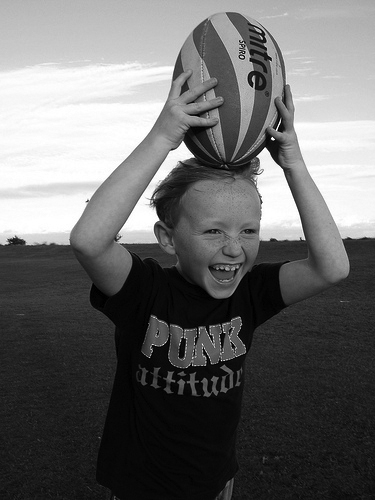Ahh March, how we love thee. The lick of winterֳ cold still laps at our heels on the daily commute and we finally make it down to wearing only one jumper. The adventurous may even side-line the woolly hat. Rebel rebel.
Until alas, the dreaded winter of the north wall shows signs of relief, Saturday afternoon Netflix sessions become less frequent and you peak out of your hole of hibernation to brave the blustery winds of Blighty for a few rounds of Irish Black and a date with a sore throat Рitֳ the Six Nations 2014!
The RBS Six Nations still grows in popularity year upon year as one fo the most unpredictable and exciting tournaments of the sporting calendar, regularly amassing an audience close to five million in the UK alone. On of the final games in 2013 – Wales’ trouncing of England 30-3 gained an audience of over 7.6 million Рnearly as much as Corrie. [1]
Needless to say, the action personifies the historical sporting rivalry of the Home Nations and acts as a (mainly) tongue in cheek vehicle for national pride.
A little history
The Six Nations beds its roots in a traditional round robin of matches between either the Home Nations consisting of England, Ireland (North and South), Scotland and Wales or the Five Nations (Home Nations including Les FranΡis). Traditionally since 1883 some form of tournament has taken place between at least four of the five nations at varying times. With the inclusion of Italy in 2000 however, the five became six and the oldest Rugby competition in the world received its latest re-branding.
The chaps south of the channel currently hold the most Six Nations wins with five, Blighty follows closely – tied at four with border brothers Wales. Ireland holds just the one title from 2009 as the Scottish and Italian contingent currently battle it out for the wooden spoon with no title wins currently.
Interestingly, multiple awards are on offer at the Six Nations as the Rugby carnival travels across the stadia of the national teams for each home game. The overall winner gains the honour of being crowned Six Nations 2014 Champion – teams who gain this accolade whilst winning all their fixtures are said to win a Grand Slam.
Other titles at stake throughout the Six Nations 2014 are:
Triple Crown: Awarded to home nation sides who defeat all others irrespective of overall standings.
Calcutta Cup: Named after an 1872 game between England and Scotland in Calcutta, India the cup itself is crafted from Indian Rupees. The cup is now awarded to the victor of England and Scotlandֳ match in the Six Nations. [2]
Centenary Quaich: Presented to the victor of Ireland and Scotlandֳ Six Nations fixture since 1989. Though the teams have played each other over 120 times, the cup standings are currently 14-12 in Scotlandֳ favour.[3]
Giuseppe Garibaldi Trophy: Match ups between France and Italy have, since 2007 been enticed by the prospect of Giuseppe Garibaldi Trophy. Named after an Italian revolutionary who was born in the now French city of Nice, the trophy has been won five times by the French and twice by the Italians. [4]
Millennium Trophy: Presented to the winner of the annual Six Nations England vs. Ireland fixture the trophy has been won 17 times by England and 10 times by the Irish since its inception in 1988.
The Six Nations 2014 so far
And so we land at round five where the contest is still completely open to three possible victors. Six Nations fever has captured the nations as England, Ireland and France are currently in the top billing for being crowned Six Nations 2014 Champions, being tied on points and separated by merely scoring points (goal difference football fans). With six points between them, each has lost only once over the course of the tournament as England stomped to their first Triple Crown since 2003[5], the Calcutta Cup and the Millennium Trophy. The title is now a juggling act with each aggressor having the opportunity to gain or lose the crown. Ireland beating France would most likely make them top banana due to their huge pointֳ difference over England no matter what the score against the Italians. Should France beat the Irish however, England would have to lose against the Azzurris for Les Bleus to claim the title Рsomething that they have never in fact done over the course of the tournament.

Infamous former Irish captain Brian Oքriscoll, who will retire after this yearsՠtournament, will be hoping to end his tenure as the most capped player in history with another victory at the Six Nations 2014, though his team havenִ beaten the French away since the inaugural championship in 2000.
Italy and Scotland once more jostle for the last place wooden spoon and though the Italians have yet to win against England, an upset is never completely off the cards.
Currently the situation is, at best, moot. Though skeptics are quick to quash the chances of an Italian victory over England such a possibility should not be ruled out completely. With every team needing to assure a win to be in with a shot at the title Рa riveting final week will galvanize the screens of BBC 1 come March 15th. Though on paper Ireland are the stronger team, Paul Oփonnellֳ men have a less than admirable record in the city of lights whereas Thierry Dusautoir’s French team have the home advantage, nothing to lose and everything to play for.
PhysioRoom.comֳ prediction? St George all the way, but hey Рweֲe biased.
Leicester Tigers Shirt and Ball Giveaway!
To coincide with the RBS Six Nations 2014, PhysioRoom.com is offering you the chance to win a signed Leicester Tigers shirt and ball when purchasing Mueller goods. To be in with a chance of winning this fabulous prize use the voucher code MUE5 when purchasing any Mueller product from PhysioRoom.com!
[1] http://www.barb.co.uk/viewing/weekly-top-10?
[2] http://www.rfu.com/twickenhamstadium/worldrugbymuseum/rugbyhistory/calcuttacup
[3] http://www.murky.org/tag/centenary-quaich/
[4] http://www.learn-rugby.com/northern_sixnations.htm
[5] http://www.telegraph.co.uk/sport/rugbyunion/international/sixnations/10683743/England-29-Wales-18-Six-Nations-2014-match-report.html


